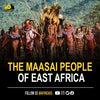The main startups hubs in the country have traditionally been São Paulo and Belo Horizonte, but now a new wave of cities are building their own thriving local startup ecosystems, including Recife with Porto Digital hub and Florianópolis with Acate. More recently, a “Black Silicon Valley” is beginning to take shape in Salvador da Bahia.
While finance and media are typically concentrated in São Paulo and Rio de Janeiro, Salvador, a city of three million in the state of Bahia, is considered one of Brazil’s cultural capitals.
With an 84% Afro-Brazilian population, there are deep, rich and visible roots of Africa in the city’s history, music, cuisine and culture. The state of Bahia is almost the size of France and has 15 million people. Bahia’s creative legacy is quite clear, given that almost all the big Brazilian cultural patrimonies have their roots here, from samba and capoeira to various regional delicacies.
Many people are unaware that Brazil has the largest Black population in any country outside of Africa. Like counterparts in the U.S. and across the Americas, Afro-Brazilians have long struggled for socio-economic equity. As with counterparts in the United States, Brazil’s Black founders have less access to capital.
According to research by Professor Marcelo Paixão for the Inter-American Development Bank, Afro-Brazilians are three times more likely to have their credit denied than their white counterparts. Afro-Brazilians also have over twice the poverty rates of white Brazilians and only a handful of Afro-Brazilians have held legislative positions, despite comprising more than 50% of the population. Not to mention, they make up less than 5% of the top level of the top 500 companies. Compared with countries like the United States or the United Kingdom, the racial funding gap is even more stark as more than 50% of Brazil’s population is classified as Afro-Brazilian.






